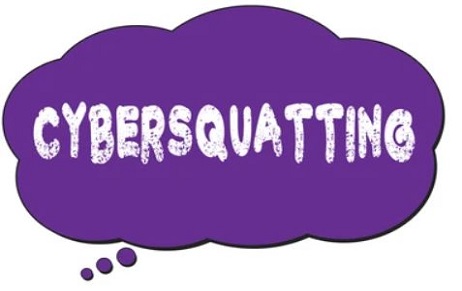Regulatory Challenges and Opportunities in Cryptocurrency: A Comparative Study of India and the U.S.
IAMAI v. RBI and SEC v. Ripple Labs, two cases from different contexts of law,…
Cyber Squatting is a threat to companies or brand name. There are cases where companies face huge loss because of cybersquatting. Domain Name plays a key role for cyber squatters to gain undue advantage of the company’s brand image. Also, the target audience of the brand or company gets reduced if they suffer from any kind of fraud, like if they get any duplicate product or second-hand product. Cyber Squatting should be prevented for the betterment of the companies to compete in the market.
Cybersquatting means registration of the domain name of existing company or any brand name for gaining profit by selling of, the trademark of that existing company or for taking the benefit of the goodwill earned by the existing company or brand.
So, using other companies domain name and infringing their trademark, or using their brand name with the malafide intention is wrong. There can be many reasons for cybersquatting and the main reason could be to reduce competition by ruining their brand image or it could be done for some personal reason, to take revenge from the owner cybersquatting could be done.
[Image Sources: Shutterstock]
 Implications of Cyber Squatting
Implications of Cyber Squatting Cybersquatting creates a serious threat to an individual and the business. The reputation of the individual, the brand image of the business is highly impacted. Brand Value is highly impacted. Also, if we look at it from the customers’ point of view, they suffer from fraud as the product they purchase is not original. So, cybersquatting affects both ways customers as well as the company.
For Example, if an individual purchases shoes of Nike and instead of getting original shoes they get duplicate. So, the brand image of the company is affected and also this amounts to fraud with the customer also, as they are the one who is getting duplicate product.
The customer who experiences fraud gets the fear of purchasing from that particular website, which directly impacts the brand value of the product. They will resist their purchase from that particular brand or company.
Proper Law on the prevention of Cyber Squatting is need of an hour, to protect the businesses and individuals.
After learning about cybersquatting, one thing is very clear that it is necessary to regulate cybersquatting, for the betterment of the company and its goodwill. There are some of the ways to protect the company from cybersquatting.
Case Law on Cyber Squatting in India
It was decided in the case of Satyam Infoway Ltd. vs Sifynet Solution Pvt Ltd.[2] it was held that there is no particular law on cyber squatting it is dealt under Trademark Act, 1999. But there are many issues with this Trademark Act like, there is no extraterritorial jurisdiction of this act, there is no proper section which talks about domain name protection, or cybersquatting. Different Law is required related to cybersquatting and its prevention.
For the growth of the business, and to maintain the brand image, proper IT department needs to be there in the company to make sure that proper care is taken to avoid any kind of cybersquatting. Also, the preventions mentioned need to be kept in mind, as cyber squatters are master minds, they can cause a huge loss to the business and for the small companies it can be very difficult to survive after they are affected by cybersquatting.
Author: Pankaj Ahuja, in case of any queries please contact/write back to us via email to chhavi@khuranaandkhurana.com or at IIPRD.
[1] US Cybersecurity, www.uscybersecurity.com (last visited January 3, 2024).
[2] Satyam Infoway Ltd. v. Sifynet Solution Pvt Ltd., 2004 (3) AWC 2366 SC.